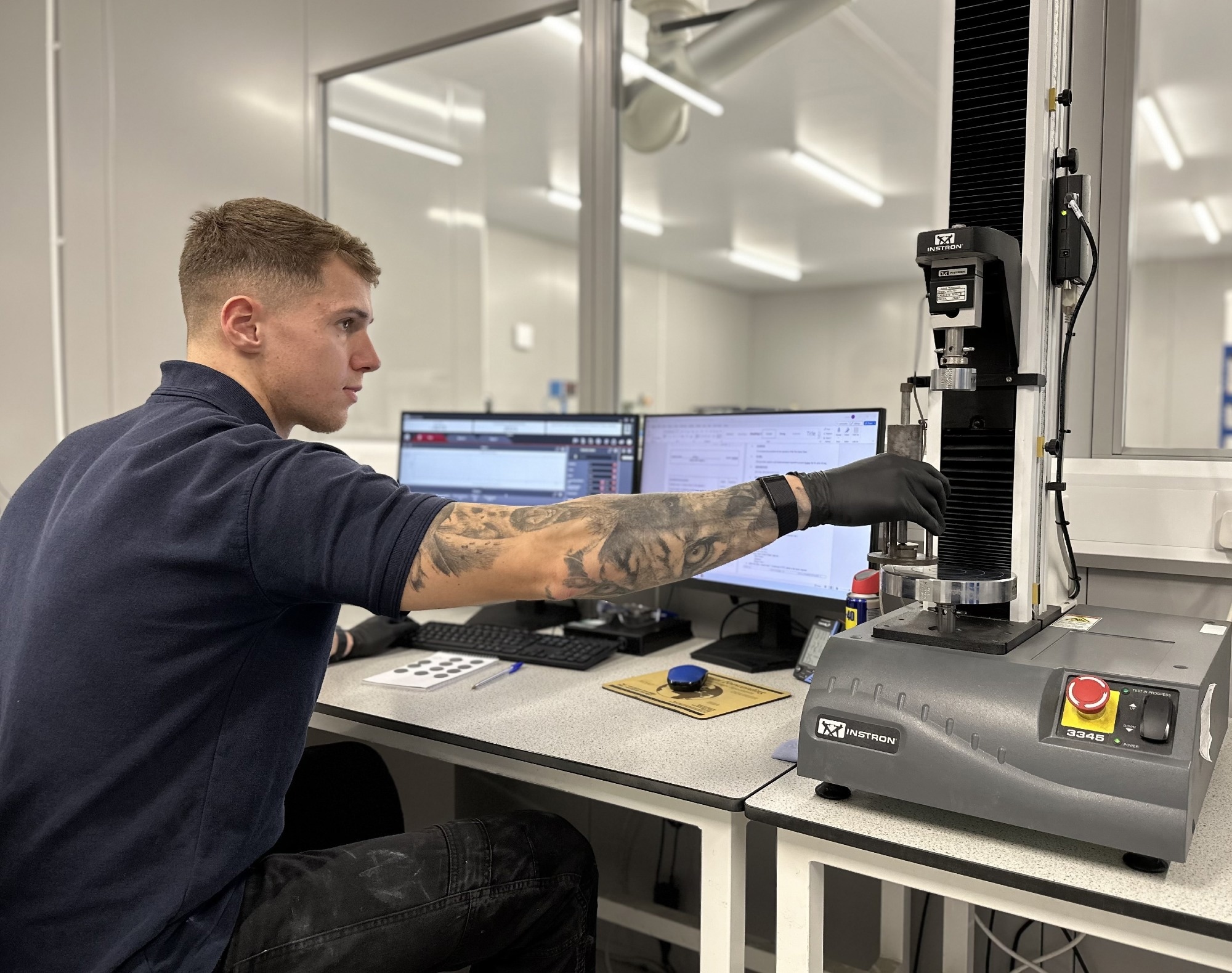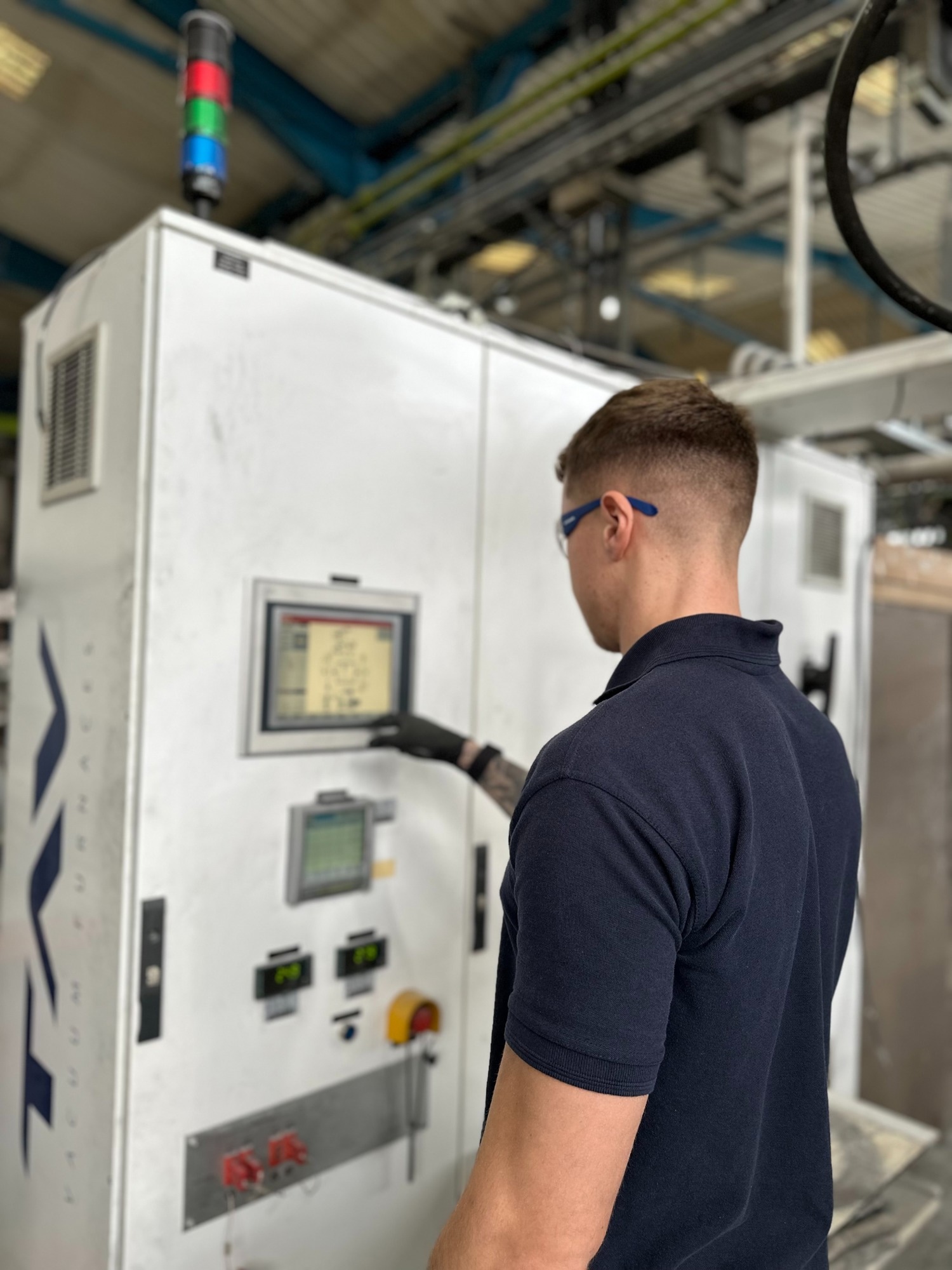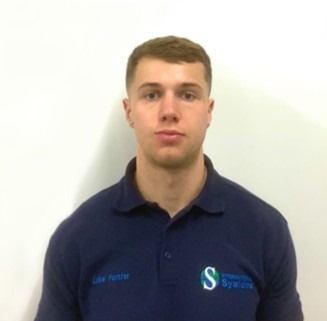In this interview, AZoM talks to Luke Forster about the opportunities he gained by joining as an Apprentice at International Syalons.
What advice would you offer to aspiring scientists, particularly those interested in pursuing a path similar to yours?
Getting experience within a laboratory and factory, as well as working alongside skilled and professional individuals, is the fastest route to developing the skills required to work in research and development. Apprenticeships provide this route, which is why I was keen to study my degree alongside gaining valuable workplace experience.
Numerous opportunities within the advanced ceramics sector demand insights and collaboration from seasoned professionals with extensive experience in intricate materials and processes – it is all about 'standing on the shoulders of giants.' Being surrounded by competent and accomplished individuals holds the promise of personal development, provided that you apply yourself correctly.
As an apprentice, what are the key skills and knowledge you are focusing on acquiring? How does your daily work contribute to this learning?
Currently, I am focusing on applying the knowledge I learn at Sheffield Hallam University to the workplace. The biggest difficulty in the transition from university to the workplace is applying the knowledge learned in the classroom and within labs to aspects of my job. The opportunity to do this with support from academic advisors, as well as my mentor, makes things easier.
Specifically, I am constantly trying to expand my knowledge of the behavior and properties of silicon nitride and zirconia and the processing conditions used to manufacture them. The microstructure-property relationship is pivotal in understanding strengthening mechanisms such as crack bridging and processing techniques which, in turn, affect the degree of microstructural evolution in the sintering process.
Reading articles and literature enables me to consistently develop both knowledge and understanding, alongside guidance from my workplace mentor and university lecturers.
What challenges do you encounter in a typical week, and how do you address them? Are there any specific obstacles that are unique to being in an apprenticeship role?
Due to my job role, every week presents new challenges. This can range from mini projects, such as investigating the effects of processing parameters on microstructural development, to simple maintenance on production and lab equipment, as well as finding process improvements for lean manufacturing.
My role demands a comprehensive understanding of the entire manufacturing route, from raw material processing to testing of finished parts, making my role challenging but exciting.
As an apprentice, I would say the biggest challenge is balancing university studies with my work here at International Syalons. Due to the demanding workload from assignments and exams and the unique and everchanging jobs around the factory, flexibility, awareness, and time management are essential when working as an apprentice.

Image Credits: International Syalons
Can you describe the mentorship and guidance you receive in your role? How does this support influence your professional development?
As an apprentice, I have quarterly apprenticeship progress reviews (APRs) with both my workplace mentor and work-based learning (WBL) coach. Within these meetings, we discuss the impact, development, and actions required to support my learning, as well as goals and targets for the next meeting. This has provided me with excellent professional practice, whereby targets and reviews help track my professional development.
Within work, my mentor and I regularly discuss ongoing projects and ideas at work, allowing us to collaborate about possible solutions to challenges we face or simply maintain transparency and clarity regarding my work.
Effective communication is essential within any company, particularly within a small to medium-sized enterprise (SME). This practice not only fosters engagement but also serves as a source of motivation for me, encouraging continuous expansion and development of knowledge and skills to provide innovative solutions.
What kind of projects do you get involved with as an Apprentice Ceramic Development Technologist? Could you share an example of a project you found particularly interesting or educational?
Ceramic development projects are known for their lengthy timelines, largely due to the slow manufacturing process involved in advanced ceramics. Personally, I find myself juggling multiple projects on a weekly basis.
One significant endeavor currently underway is the development of a superior grade of Sialon, engineered to exhibit enhanced resistance to corrosion in molten copper compared to our existing grades.
Additionally, I've been actively engaged in refining workplace standard operating procedures (SOPs) to elevate our quality systems. Another ongoing initiative entails transitioning from the traditional ball-on-three-ball biaxial strength test to a more modern ring-on-ring biaxial test method.
How do you stay updated with the latest technological advancements in ceramic development? Are there any recent innovations that have significantly impacted your work?
As an apprentice, I benefit from an IOM3 student membership, providing me with access to a wealth of resources including news updates, events, publications, and training academies.
Additionally, I actively participate in conferences and exhibitions, such as The Advanced Ceramics Show at the NEC Birmingham. These engagements allow me to establish valuable connections and stay ahead in terms of the latest industry developments and best practices in materials and testing.
International Syalons is also exploring additive manufacturing technologies for silicon nitride ceramics, enabling near-net shape production of complex geometry components for novel applications.

Image Credits: International Syalons
Could you walk us through a typical day in your role as an Apprentice Ceramic Development Technologist? How do you prioritize your tasks and manage your time?
My primary role involves providing support to production and quality assurance by conducting material characterization and testing. This includes tasks such as particle size distribution testing and analysis of other powder properties and morphologies. These tests are crucial for approving materials for use before the forming stages.
Once the forming process is completed, I proceed to perform post-sintering tests, which include measuring density, strength, and hardness. Additionally, I conduct phase characterization using X-Ray diffraction techniques to ensure the quality and integrity of the final product.
Given the extended timelines of development projects, I typically find myself juggling multiple ongoing initiatives simultaneously. It's not uncommon for me to contribute to two or even three projects in a single day, depending on their respective progress. In between practical work I spend time updating records and project notes, reading literature, and working on my university coursework.
Where do you see your career heading after completing your apprenticeship? Are there specific areas within ceramic development that you are particularly interested in?
Once my apprenticeship is complete, I would like to maintain an upward trajectory and continue to diversify my skills as a materials engineer. This ranges from material development and testing to improving quality systems and expanding mechanical knowledge through equipment maintenance.
I think International Syalons provides this expansive platform for me to continue to mature personally and professionally, as my colleagues recognize my ambitious nature and provide me with suitable opportunities that support my goals.
About Luke Forster
Luke Forster is an Apprentice Ceramic Development Technologist at International Syalons, and in his final year studying a BEng Hon Materials Technology degree apprenticeship at Sheffield Hallam University. International Syalons, based in Newcastle Upon Tyne, are the UK’s leading manufacturer of sialon and silicon nitride-based advanced ceramic products and powders.

This information has been sourced, reviewed and adapted from materials provided by International Syalons.
For more information on this source, please visit International Syalons.
Disclaimer: The views expressed here are those of the interviewee and do not necessarily represent the views of AZoM.com Limited (T/A) AZoNetwork, the owner and operator of this website. This disclaimer forms part of the Terms and Conditions of use of this website.